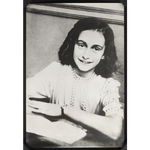LBI Book Club, Vol II, Part 1: The World of Yesterday by Stefan Zweig



- Date/Time
- –
- Format
- Online
Join us for a discussion of Stefan Zweig's The World of Yesterday, featuring George Prochnik, author of The Impossible Exile: Stefan Zweig at the End of the World.
Please note that the discussion for The World of Yesterday will be broken into 2 parts, Chapters 1-8 and Chapters 9-16. The first 8 chapters will be discussed in the June 2nd meeting. The second 8 chapters will be discussed in the June 9th meeting. IF YOU WISH TO ATTEND BOTH SECTIONS, PLEASE REGISTER FOR BOTH. This is the webpage for the first session. The page for the second session is here. Thank you!
Book
Written as both a recollection of the past and a warning for future generations, The World of Yesterday recalls the golden age of literary Vienna—its seeming permanence, its promise, and its devastating fall. Surrounded by the leading literary lights of the epoch, Stefan Zweig draws a vivid and intimate account of his life and travels through Vienna, Paris, Berlin, and London, touching on the very heart of European culture. His passionate, evocative prose paints a portrait of an era that danced brilliantly on the edge of extinction. The World of Yesterday is often described as Zweig’s memoir to a lost world.
“This memoir…tells us much about the world that made him. He begins by saying that "I never considered myself important enough to feel tempted to tell others the story of my life", but this is more than just an autobiography; it is a long lament for a lost world, a testament to the values of decency, toleration, humanism, and artistic and cultural endeavor; it is also, you can't help thinking, an unusually eloquent and moving suicide note, albeit one more than 450 pages long.” Nicholas Lezard, December 2009, The Guardian.
“The World of Yesterday, Zweig’s memoir, was completed shortly before his suicide. It charts the history of Europe from nineteenth-century splendor, decadence, and complacency, through the devastation of the First World War, to the resultant brutality and depravity of the Nazi regime. The World of Yesterday is a heartfelt tribute to an age of humanity and enlightenment that Zweig feared was lost forever. An incomparable record of a lost era….” Pushkin Press, London.
Author
During his lifetime, Stefan Zweig’s (b. 1881) works were immensely popular and widely translated. In the decades after his death, he was largely forgotten in the English-speaking world. Recent years, however, have witnessed a resurgence of interest in his writings. Zweig was forced to flee Europe in the Nazi period, committing suicide in Brazil in 1942.
Commentator
This meeting of the book club will feature remarks by and discussion with George Prochnik, whose biography of Stefan Zweig, The Impossible Exile: Stefan Zweig at the End of the World, received the National Jewish Book Award for Biography/Memoir in 2014 and was short-listed for the Wingate Prize in the United Kingdom. Prochnik is also the author of In Pursuit of Silence: Listening for Meaning in a World of Noise (2010), and Putnam Camp: Sigmund Freud, James Jackson Putnam, and the Purpose of American Psychology (2006). He has written for The New Yorker, New York Times, Bookforum, and Los Angeles Review of Books, and is editor-at-large for Cabinet magazine.



